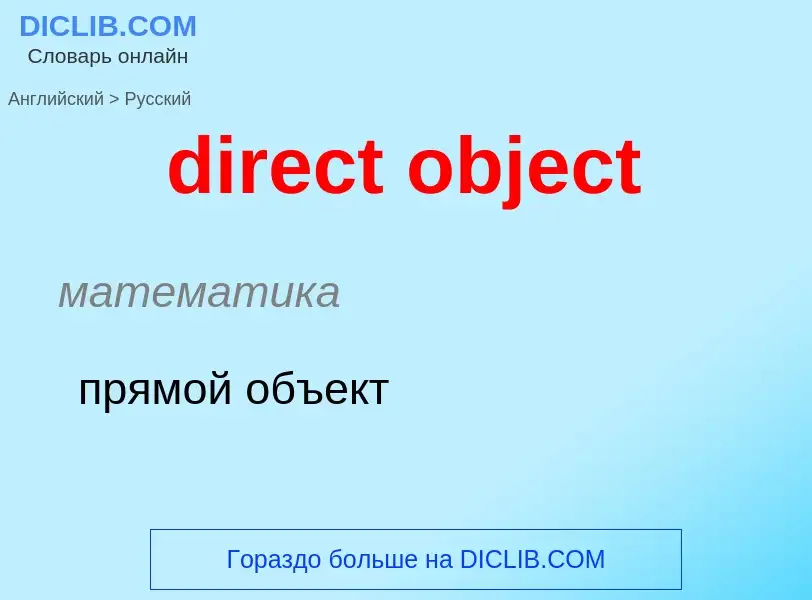Traduzione e analisi delle parole tramite l'intelligenza artificiale ChatGPT
In questa pagina puoi ottenere un'analisi dettagliata di una parola o frase, prodotta utilizzando la migliore tecnologia di intelligenza artificiale fino ad oggi:
- come viene usata la parola
- frequenza di utilizzo
- è usato più spesso nel discorso orale o scritto
- opzioni di traduzione delle parole
- esempi di utilizzo (varie frasi con traduzione)
- etimologia
direct object - traduzione in russo
математика
прямой объект
общая лексика
косвенное дополнение
Definizione
Wikipedia
In linguistics, an object is any of several types of arguments. In subject-prominent, nominative-accusative languages such as English, a transitive verb typically distinguishes between its subject and any of its objects, which can include but are not limited to direct objects, indirect objects, and arguments of adpositions (prepositions or postpositions); the latter are more accurately termed oblique arguments, thus including other arguments not covered by core grammatical roles, such as those governed by case morphology (as in languages such as Latin) or relational nouns (as is typical for members of the Mesoamerican Linguistic Area). In ergative-absolutive languages, for example most Australian Aboriginal languages, the term "subject" is ambiguous, and thus the term "agent" is often used instead to contrast with "object", such that basic word order is often spoken of in terms such as Agent-Object-Verb (AOV) instead of Subject-Object-Verb (SOV). Topic-prominent languages, such as Mandarin, focus their grammars less on the subject-object or agent-object dichotomies but rather on the pragmatic dichotomy of topic and comment.

